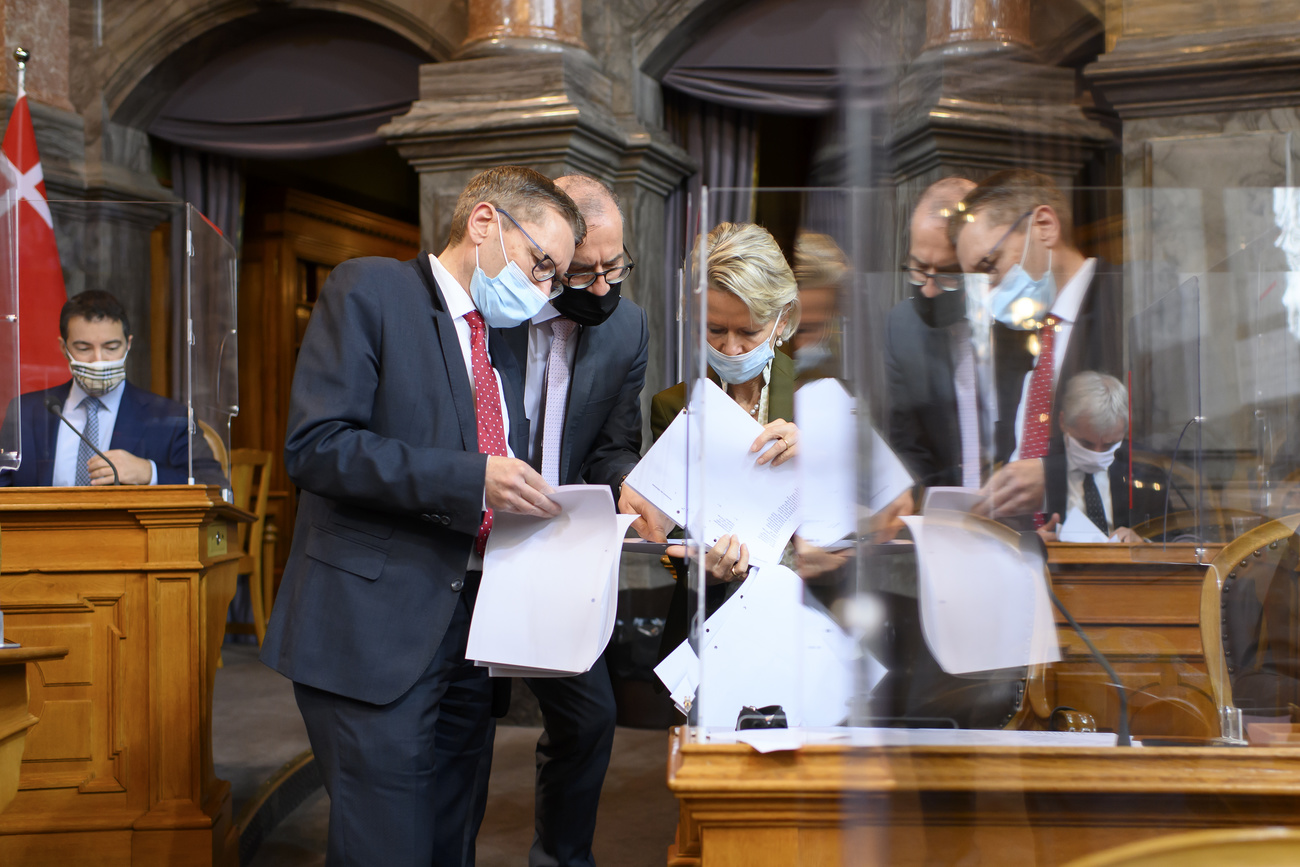Covid-19 law wins endorsement from voters

An attempt to veto the Swiss government’s anti-Covid policy has failed in a nationwide referendum but activists say they will continue to fight against the authorities.
Final results show opponents clearly falling short of a winning a majority in Sunday’s referendum, taking about 40% of the vote.
Urs Bieri, co-director of the GfS Bern research institute, said the result is a vote of confidence in the government’s pandemic policy.
Opponents said they were disappointed but vowed to continue to fight against anti-Covid-19 measures, notably a vaccination certificate and financial support for the media. Several thousand people rallied in the town of Zug on Sunday to protest against the government policy.
It is the latest in series of demonstrations mainly in German-speaking Switzerland since November.
Interior Minister Alain Berset said approval of the law allowed the authorities to continue to provide financial support to individuals and companies hit hard by restrictions. He said it also paved the way for a Covid vaccination certificate and the government to pay towards the costs of vaccinations and tests.
“It is good news for all those who need help,” he told a news conference. “The health crisis might soon be over, but economic difficulties will remain.”
Emergency rule
The law was approved by parliament last September and its validity is limited to the end of this year, creating the legal basis for decisions taken by the government under emergency rule in the first six months of the pandemic.
The law mainly defines the conditions for financial support from the state for individuals and companies hard-hit by restrictions, including temporary closures or limited access rules, imposed since March 2020.
OpponentsExternal link – a diverse group of citizens, critics of vaccination programmes and hygiene masks -, have accused the Swiss government of acting as a power-grabbing authority, violating in the country’s federalist constitution and its system of direct democracy.
Financial backing could also be provided without the so-called Covid-19 law, government critics said.
They collected enough signatures to challenge the law to a nationwide vote, without official support by any of the main political parties or interest groups.
Risks
However, the government says it had to act quickly to try to prevent a collapse of the country’s health system and avert a serious economic crisis. The contested law is fully in line with the constitution and democratic principles, according to supporters of the law.
Last year, the government spent more than CHF30 billion ($33 billion) on financial compensation schemes, loan guarantees and medical goods, including vaccines, to offset the impact of the pandemic, according to the finance ministry.
It also stressed that the Covid-19 law does not cover the vaccination policy or define the government’s role under emergency rule.
The campaign about the law and the government’s alleged authoritarian policies was overshadowed by the other four issues on the ballot sheet on Sunday.
Reducing fossil fuel emissions (CO2 law) 48.4% yes 51.6% no
‘Drinking water’ initiative 39.3% yes 60.7% no
‘Anti-pesticide’ initiative 39.4% yes 60.6% no
Preventing extremism (Anti-terrorism law) 56.6% yes 43.4% no
Government pandemic policy (Covid-19 law) 60.2% yes 39.8% no
Turnout: 59.7%
About 5.5 million Swiss citizens, including registered expat Swiss, were eligible to take part in the votes.
There were also additional ballots in 12 of the country’s 26 cantons and at local levels on June 13.

In compliance with the JTI standards
More: SWI swissinfo.ch certified by the Journalism Trust Initiative
















You can find an overview of ongoing debates with our journalists here . Please join us!
If you want to start a conversation about a topic raised in this article or want to report factual errors, email us at english@swissinfo.ch.